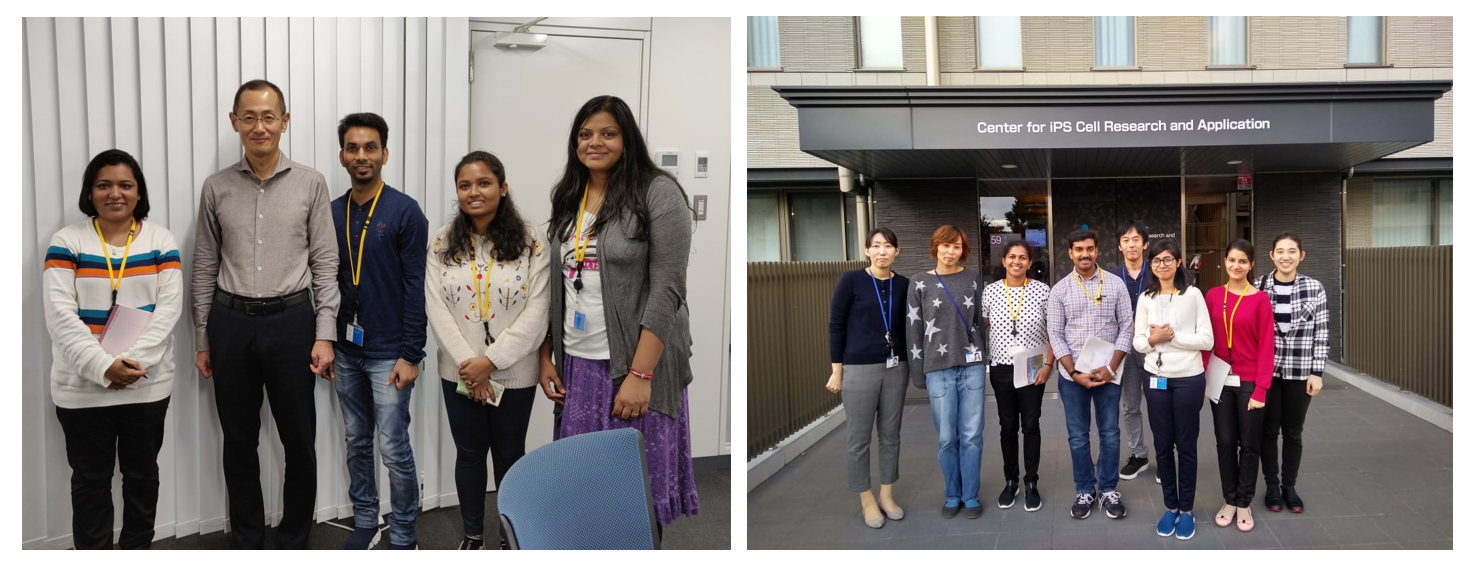Indo-Japan collaboration program enables a special training for Indian researchers in iPSC technology at CiRA, Japan

In 2006, Prof. Shinya Yamanaka, a stem-cell researcher, created the first induced pluripotent stem cells (iPSCs) by using four genetic factors to reprogram adult cells from mice into stem-cell state. A year later he achieved the same in human cells. This groundbreaking discovery presented an inexhaustible source of human pluripotent stem cells and iPS cells have now become an important tool for modelling and studying human diseases, as well as for drugs screening.
The Center for iPS Cell Research and Application (CiRA) at Kyoto University was established in 2010 by Prof. Yamanka to promote iPS technology and iPS cell-based regenerative medicine. An Indo-Japan collaboration for iPSC research has been made possible by the program "Accelerator Program for discovery in Brain disorders using Stem cells" (ADBS), a multi-institutional initiative launched in 2016, jointly supported by the Department of Biotechnology (DBT) and the Pratiksha Trust, a charitable trust setup by Mr. Kris Gopalakrishnan, co-founder of Infosys and his family.
The ADBS program involves three Indian institutes - The National Centre for Biological Sciences (NCBS), Institute for Stem Cell and Regenerative Medicine (inStem), National Institute for Mental Health and Neurosciences (NIMHANS), from Bangalore and the Center for iPS Cell Research and Application (CiRA) at Kyoto as the international partner. One of the program’s mission is to expand the expertise for state-of-the-art stem cell research in India. As part of this, every year CiRA hosts Indian researchers for a training program on iPSC generation and maintenance.
The training program is designed to provide expert training to young researchers on iPS technology, aid their career growth and also to strengthen collaborative ties between these international research institutes. A group of eight early career Indian researchers got an opportunity to participate in this special training program conducted at CiRA in November 2018.
“We were given extensive hands on training on every single step in iPSC generation, maintenance and storage. The experience gained will help my current research and also to set up a core facility for iPSC research in our institute”, said Mr. Bipin Raj Shekhar, PhD student at the ICMR- National Institute for Research in Reproductive Health.
As part of the program, the researchers were also given opportunity to visit the laboratories and interact with researchers at CiRA.
“Tour of the Facility for iPS Cell Therapy (FiT) was both exciting and demonstrative of the extremely high level of cleanliness and care required to generate iPSC for clinical application and regenerative medicine” said Ms. Priyanka Bhatia, Senior research fellow at the Institute for Stem Cell and Regenerative Medicine (inStem).
Ms. Chandrima Dey, a PhD student at IIT Guwahati said that the training program was an amazing experience and she was highly motivated by Prof. Yamanaka’s words that what we today will help somebody in need, not necessarily tomorrow, but definitely in future.



